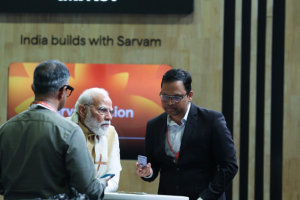Digital lender Ebury said on Thursday it would enter Hong Kong’s non-bank market to provide trade finance for credit-starved small and medium-sized enterprises (SMEs).
The company said it would compete with large banks and other non-bank lenders by offering SMEs unsecured trade finance with credit line sizes of up to $5 million.
Ebury, a UK-based ‘unicorn’ with a valuation of more than $1 billion, began offering foreign exchange and risk management to Hong Kong SMEs in 2019.
Liam Thomas, country manager for Hong Kong, said that many local SMEs face difficulty getting capital for their business because of “red tape, rigid systems and complex lender demands”.
He pointed to a global trade finance gap that the Asian Development Bank estimated was $1.7 trillion in 2021, a 15% rise in two years.
Difference Between Requests and Approvals
The gap represents the difference between requests and approvals for financing to support imports and exports.
The ADB said the coronavirus pandemic had “heightened economic and financial uncertainties and devastated global trade”. SMEs were hardest hit – accounting for 40% of rejected trade finance requests, the regional lender said in October 2021.
Women-owned SMEs found it particularly difficult to get finance, with a reported 70% of their applications totally or partially rejected.
“Trade is critical for the global economy to recover from the pandemic, but the financing shortfall makes it much harder to create jobs and growth,” Steven Beck, ADB trade and supply chain finance head, said.
Regulations designed to curb money laundering and fraud continued to inadvertently pose obstacles to servicing trade finance needs.
So, the ADB welcomed the entry of digital lenders to close the gap.
“We need to bring trade fully into the digital world through greater coordination with the private sector as well as global agreement on common standards, practices and legislation,” Beck added.
- George Russell
READ MORE:
Global Trade Finance Needs Reform, Says New Report
Trusting the tech to make the checks – the case for AI in trade finance
Malaysia’s Maybank Commits to $11.9bn Sustainable Finance Framework
























